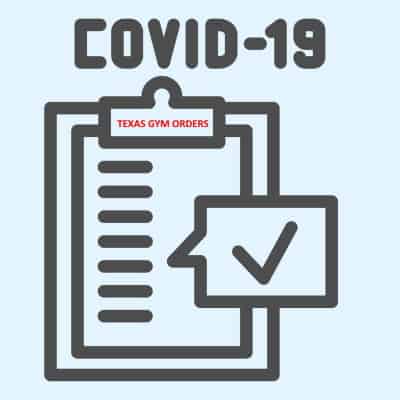 If you own a Texas gym or martial arts studio, you’re probably trying to sort out which government mandates to obey so that you can keep your doors open. Here’s a quick overview of Texas gym coronavirus orders and protocols owners need to know.
If you own a Texas gym or martial arts studio, you’re probably trying to sort out which government mandates to obey so that you can keep your doors open. Here’s a quick overview of Texas gym coronavirus orders and protocols owners need to know.
1. Texas Governor’s Executive Orders
Unless they’re overturned in court, the Texas Governor’s executive orders are the first thing you’ll want to read and understand how they apply to your fitness center or martial arts studio. As a general rule, anything issued by a county or city has to be consistent with the governor’s orders.
If there’s a dispute between the governor and local officials, chances are the governor will ultimately win because the governor’s political party also holds all state supreme court justice positions (Texas Supreme Court Justices are elected by party too).
2. Texas Department of State Health Services Minimum Standard Health Protocols
These coronavirus health protocols (with checklists) were developed per the governor’s executive orders. There are two types of protocols you’ll want to read and follow.
- First, there’s the protocols for your business (e.g. equipment cleaning) and your workers (e.g. instructors).
- Second, there’s protocols for your members and guests to follow when they visit your facility.
3. Texas County COVID-19 Orders.
Your Texas County Judge may also issue orders that contain additional requirements. The office of “County Judge” is actually a political post (not a judge sitting in a courtroom) that speaks on behalf of your County Commissioners.
There’s a lot of confusion at this level because many county judges issuing orders are of a different political party than the governor. So, what you’re seeing come from the county judges (like the governor) is often about partisan politics as much as it is about public safety. Unfortunately, this doesn’t help you comply but it does give you some background as to why things seem intentionally confusing instead of easy to understand and follow.
In theory, a county judge’s order can only complement the governor’s order but can’t contradict it. For example, the governor has said that his orders permitting additional hygiene measures would be consistent with local orders mandating businesses require face mask use…and fining a gym that didn’t comply.
However, a county judge couldn’t order that an individual be fined or imprisoned for not wearing a mask because the governor’s orders expressly prohibit that from happening.
4. City Coronavirus Orders.
Your local mayor or city council may issue orders (or even pass ordinances) that contain additional requirements.
Like county judges, most large city officials of the opposite political party as the governor. And for the same partisan reasons, you may see orders issued locally that are not clear on what you’re supposed to do when you read them in context of the governor’s orders and the state health protocols.
As a general rule of thumb, a local order can complement but not contradict coronavirus orders issued at the state level.
5. How to get started complying with Texas gym coronavirus orders
In a nutshell, here’s what to do.
First, review the governor’s latest executive orders that address COVID-19 coronavirus and gyms/martial arts studios.
Second, read the state’s two minimum standard health protocols for gyms and their patrons — and use the checklists they contain to comply with the governor’s orders.
Third, see if your county has issued a local order with additional requirements (e.g. face mask use).
Fourth, see if your city has issued a local order (or passed an ordinance) with additional coronavirus safety requirements.
Fifth, determine if there are any exceptions to the government mandates that may apply to your gym staff, members, and visitors.
Questions About Texas Gym Coronavirus Orders
If you’re an owner and have any questions, speak with an experienced Texas business lawyer who represents gyms and martial arts studios. Note that in addition to complying with coronavirus orders and protocols, you may want to update your legal documents to provide additional protection (e.g. a COVID-19 liability waiver tailored for gyms and martial arts studios).
